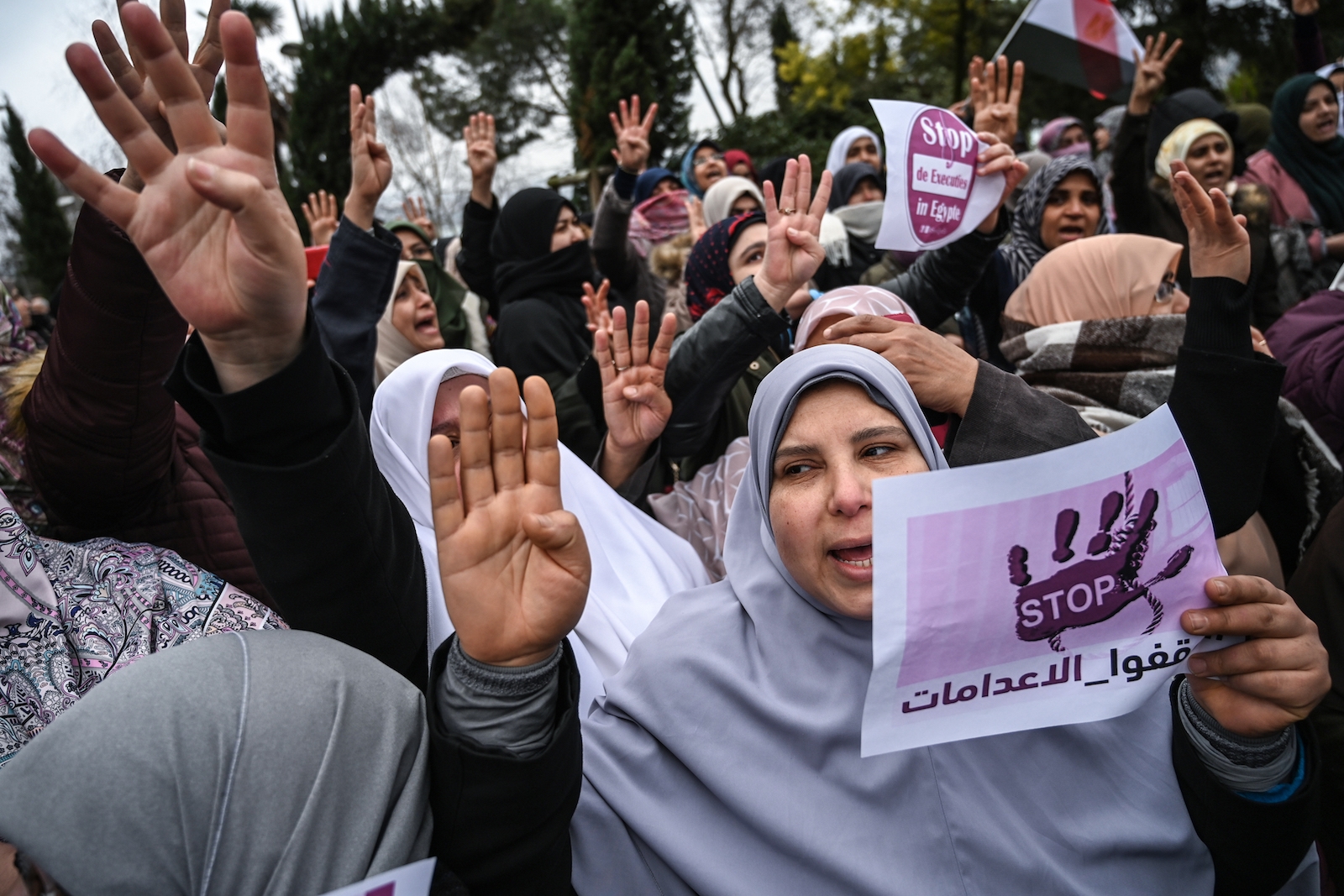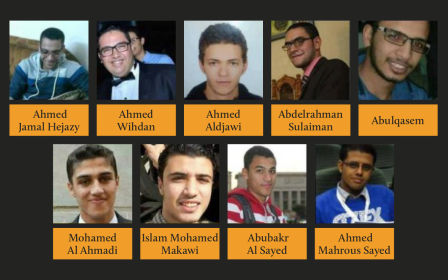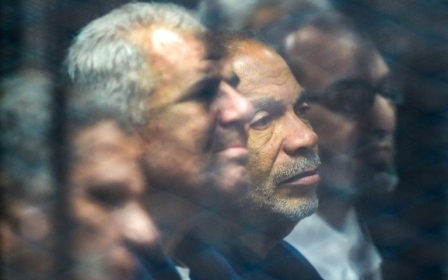Iran and Iraq lead way in reducing executions in the Middle East

The Middle East saw far fewer executions in 2018 than it did the previous year, driven largely by sharp reductions in the number of people being put to death in Iran and Iraq, according to Amnesty International.
A report from the human rights group released on Tuesday found that the number of executions in the Middle East fell by 41 percent in one year, from 847 in 2017 to 501 in 2018.
That's the lowest number of executions the region has seen in almost a decade.
"We're encouraged by the reduction in executions, which suggests that even the countries that are the most adherent to the death penalty are beginning to change their ways," Oluwatosin Popoola, one of Amnesty's death penalty experts, told Middle East Eye.
"A 50 percent drop in Iran shows that when legal reforms take place, executions can fall. However, we must also note that, overall, the region continues to use the death penalty heavily and against international law."
New MEE newsletter: Jerusalem Dispatch
Sign up to get the latest insights and analysis on Israel-Palestine, alongside Turkey Unpacked and other MEE newsletters
Only Egypt, Iran, Saudi Arabia and Yemen were known to have carried out executions in 2018.
'Even the countries that are the most adherent to the death penalty are beginning to change their ways'
- Oluwatosin Popoola, Amnesty International
That's half the number of countries that used what Popoola called the "ultimate cruel, inhuman and degrading punishment" in 2017.
While Bahrain, Jordan, Kuwait, Palestine and the United Arab Emirates had carried out executions in 2017, none were recorded in those countries a year later, according to Amnesty's 55-page report.
The methods of execution ranged from beheadings in Saudi Arabia to shootings in Yemen. Hangings were used in Egypt, Iran, Iraq and Sudan, while stoning to death is kept on the books in some countries, but is seldom used.
Meanwhile, the chaos of Syria's war made it impossible to collect data in that country, said Popoola.
Beheadings, crucifixions and other punishments carried out by the so-called Islamic State (IS) group were not viewed as judicial executions and were not counted, he added.
Decline in Iran, Iraq
Supporters of the death penalty say that it deters would-be killers and drug dealers from wrongdoing. Abolitionists say it is cruel, outdated and typically punishes poor and minority groups, while people who are well-connected get lighter sentences.
Iran has long been among the world's top users of the death penalty, with courts battling epidemics of heroin and opium abuse - and levying the punishment against drug addicts and drug dealers making money from the illicit industry, among others.
Still, recorded executions there have fallen by half, from 507 in 2017 to 253 in 2018, Amnesty International found in its report.
This followed a shift in November 2017, when Iranian lawmakers re-wrote the country's anti-drug rules so that only kingpins, armed dealers and those convicted of smuggling large quantities of narcotics would face the punishment.
Hadi Ghaemi, director of the Center for Human Rights in Iran, a campaign group, described a long struggle to change attitudes in the country, which at one time executed some 1,000 drug dealers and other convicts every year.
"It's a remarkable decline and a major accomplishment for a 10-year campaign, by activists both inside and outside Iran, aided by international pressure, against the senseless use of the death penalty in Iran," Ghaemi said.
"It was overused, too frequently against poor and illiterate individuals but not the cartel kingpins. It did nothing to address Iran's drug epidemic, and slowly public opinion and even the hardliners wised up to this."
Neighbouring Iraq saw even bigger reductions between 2017 and 2018, with a 58 percent drop in recorded executions - from 125 to 52 - in that one-year span.
This may reflect a slowdown in executions of IS members, many of whom were rounded up and convicted under anti-terror laws as their self-declared caliphate was beaten back and eventually defeated in Iraq during 2017, said Popoola.
Practice continues
But the report did not suggest a wholesale shift away from executions in the Middle East.
Although Iraq and Iran recorded big reductions, they still rank among the world's top five countries that carry out executions. The others are Saudi Arabia, with 149 recorded executions, Vietnam (at least 85) and China (more than 1,000).
In Iran, for instance, justice is often imposed more harshly against members of minority groups, such as Mohammad Salas.
A Gonabadi Dervish, Salas was executed in June after being found guilty in a "grossly unfair" trial for the murder of three police officers, the Amnesty report said.
Iran too frequently executes those who were aged under 18 at the time of their crimes, the group also found.
Saudi Arabia executes a large number of foreigners, mostly for murder and drug crimes, while defendants in such trials often lack legal safeguards and sometimes don't get a translator in court, Popoola said.
While the rate of executions across the region has fallen, the same does not go for the number of death penalties that were handed down by courts.
'It's a remarkable decline and a major accomplishment for a 10-year campaign, by activists both inside and outside Iran ... against the senseless use of the death penalty'
- Hadi Ghaemi, Center for Human Rights in Iran
In Iraq, that number quadrupled from at least 65 in 2017 to at least 271 in 2018.
And in Egypt, the number of death sentences handed down rose by more than 75 percent, from at least 402 in 2017 to at least 717 in 2018, as the government of President Abdel Fattah el-Sisi cracked down on political opponents.
Nizam Assaf, the Amman-based co-ordinator of the Arab Coalition Against the Death Penalty, noted that while execution rates had fallen, no single Middle Eastern government had excised the death penalty from its laws this past year.
"There's been a reduction in executions in Iran and Iraq, but these two countries still execute large numbers of people," Assaf told MEE.
"We're still waiting to see real progress on this issue in our region. We need to see more lobbying work and more international pressure on these regimes so that the right to life is properly respected."
Middle East Eye delivers independent and unrivalled coverage and analysis of the Middle East, North Africa and beyond. To learn more about republishing this content and the associated fees, please fill out this form. More about MEE can be found here.





